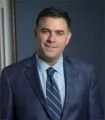In 2019, Arnold & Porter wrote about DOJ's new multi-agency Procurement Collusion Strike Force (PCSF or Strike Force). Formed in November 2019, this Antitrust Division initiative focuses on detecting, investigating, prosecuting, and deterring antitrust crimes such as bid-rigging and related fraudulent schemes in the grant, government-procurement, and program-funding areas. At the time of the announcement, over one-third of the Antitrust Division's open investigations related to public procurement or other violations against the government. During its first year, the PCSF developed resources, focused on CARES Act spending, and participated in its first public indictments.
Below are the main developments from 2020 and our analysis for how they will bear on the Strike Force's activities in 2021.
New Partners and Leadership. Assistant Attorney General Makan Delrahim recently explained that the PCSF's first year was about "proving the concept." In that regard, PCSF continues to grow. Initially a collaboration between DOJ's Antitrust Division, 13 US Attorneys' Offices, FBI investigators, and four federal Offices of Inspector General, the Strike Force continues to welcome new partners into the fold. Delrahim announced that nine additional US Attorneys' Offices will join the effort, as will the Department of Homeland Security's Office of Inspector General and the Air Force Office of Special Investigations. In addition to new partners, DOJ appointed new leadership: Daniel Glad was made PCSF's first permanent director. Glad previously served as the Assistant Chief in the Antitrust Division's Chicago Office and as a prosecutor in the US Attorney's Office for the Northern District of Illinois.
COVID-19. The global pandemic has accelerated PCSF's efforts. In response to the health crisis, the Strike Force customized its training to meet the needs of the contract management and procurement professionals responsible for CARES Act spending at the Center for Disease Control and Prevention, the Federal Emergency Management Agency, and the United States Army Corps of Engineers. In addition, PCSF created a dedicated reporting portal for procurement collusion tips, referring hundreds of price gouging and hoarding tips to the COVID-19 task force.
Training. Despite operating in a virtual environment, PCSF has trained over 8,000 criminal investigators, certified fraud examiners, auditors, data scientists, and procurement officials on how to spot evidence of collusion in public procurement. According to Delrahim, DOJ has focused on developing analytical models that "proactively identify red flags of antitrust crimes and related fraud schemes in bid and award data." The Strike Force has also expanded to include an international focus, investigating anti-competitive behavior involving US government contracts and grants abroad.
Investigations. Delrahim emphasized that over the past year, PCSF has opened over two dozen grand jury investigations, related to issues ranging from defense and national security to public works projects. In October 2020, DOJ referred to PCSF when announcing the indictment of Contech Engineered Solutions and its former executive on fraud and antitrust charges, though the PCSF's exact role in the investigation is unclear. The defendants allegedly conspired to rig bids for aluminum structure projects funded by the United States and North Carolina Department of Transportation for nearly a decade.
What to Expect. By appointing a permanent director and expanding inter-agency partnerships, the Antitrust Division signals its continued commitment to pursuing companies and individuals involved in fraudulent schemes, including bid-rigging in the government procurement sphere. We expect that this commitment will result in the announcement of additional prosecutions in 2021.
The content of this article is intended to provide a general guide to the subject matter. Specialist advice should be sought about your specific circumstances.




